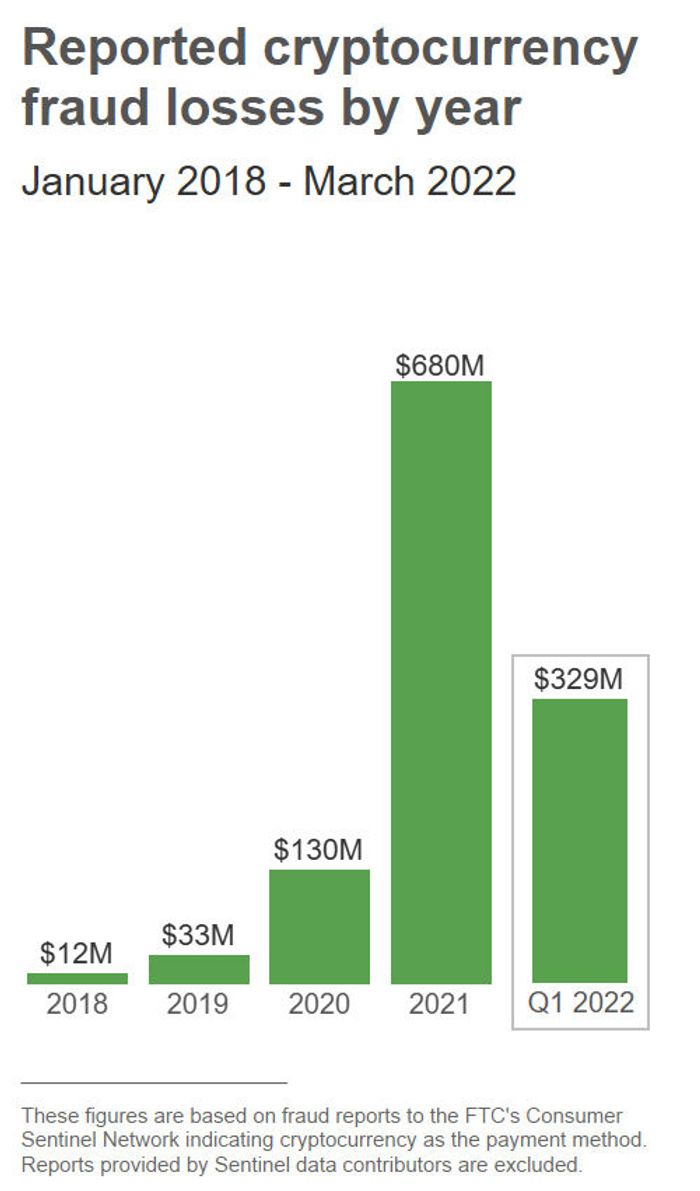Since the start of last year, more than 46,000 consumers have reported losing a total of $1 billion in cryptocurrency to scammers, the Federal Trade Commission said in a new report Friday.
The median reported loss from an individual scam was $2,600.
The data are based on fraud reports made directly to the FTC, and therefore they likely underestimate the total impact of crypto scams on American consumers, given that many victims do not report their experiences to the government.
“Crypto has several features that are attractive to scammers, which may help explain why the reported losses in 2021 were nearly sixty times what they were in 2018,” wrote Emma Fletcher, a senior researcher at the FTC in a blog post.
“There’s no bank or other centralized authority to flag suspicious transactions and attempt to stop fraud before it happens,” she added. “Crypto transfers can’t be reversed – once the money’s gone, there’s no getting it back. And most people are still unfamiliar with how crypto works. These considerations are not unique to crypto transactions, but they all play into the hands of scammers.”

Prices of cryptocurrencies like bitcoin BTCUSD, -2.43% and ether ETHUSD, -2.96% have seen sharp declines in recent months. The total market capitalization of cryptocurrencies hit a peak of nearly $3 trillion in November, but has fallen to roughly $1.2 trillion today, according to coinmarketcap.com.
Social media is a major breeding ground for crypto-related fraud, the FTC said, with nearly half the people who reported losing money to crypto scams saying it was instigated by an ad, post or message on a social media platform.
Of those who reported being defrauded on social media, 32% said it began on Instagram, 26% on Facebook FB, -3.75%, 9% on WhatsApp, and 7% on Telegram, the report said.
The scams most often came in the form of promises of large returns on an initial investment, which is then simply siphoned off into the scammers own crypto wallet.
“People report that investment websites and apps let them track the growth of their crypto, but it’s all fake,” Fletcher wrote. “Some people report making a small test withdrawal – just enough to convince them it’s safe to go all in. When they really try to cash out, they’re told to send more crypto for (fake) fees, and they don’t get any of their money back.”










Add Comment